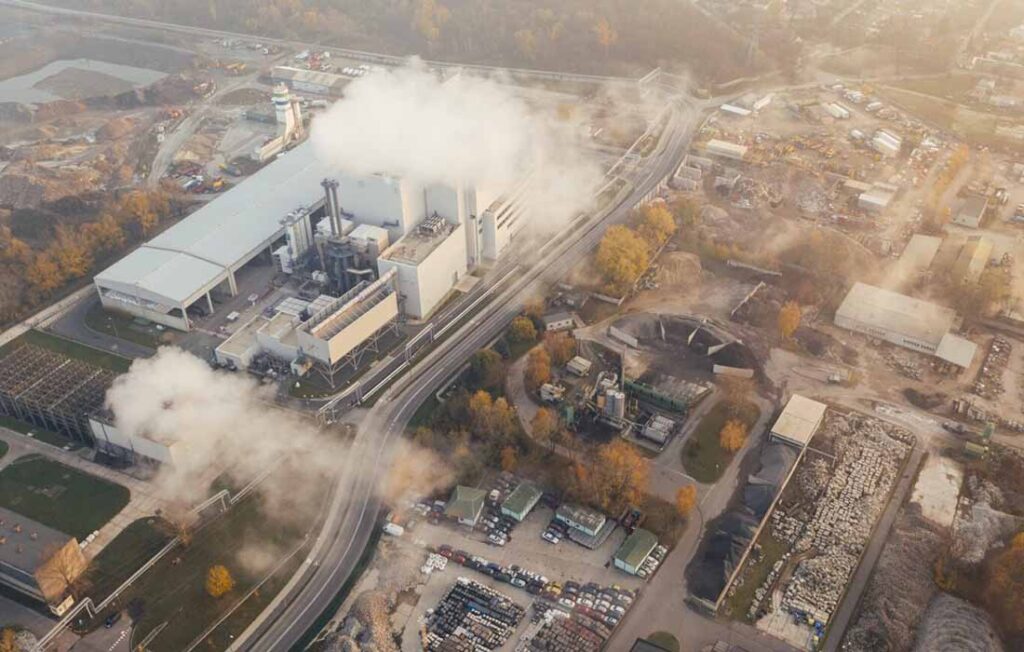The movement for environmental justice is founded on a few simple principles. For one, it recognizes that human beings are very much a part of the biosphere, dependent on and impacting (to an unprecedented degree) its ecological processes and systems. It also acknowledges the fact that the repercussions of environmental damage—as well as the benefits that stem from healthy ecosystems and natural resources—are unequal across racial and socioeconomic lines.
It’s all too common that minority, low-income, and other marginalized communities suffer the outsized impacts of environmental decline. For example, 3 out of 5 African Americans live in communities with toxic waste sites. Looking at these fundamental realities head-on and clear-eyed, everything from public health to community vitality can be framed as environmental issues.
Formulated in the 1980s (but with elements dating back to the civil rights movement), the lens of environmental justice has never been higher profile, as the world reckons with a globalized economy, systemic inequities, and the accelerating challenge of climate change.
These are no small challenges. Bottom line: more people need to be aware and get involved. Right now. So how can you? We’ve compiled a list of 10 incredible U.S. nonprofits focused on the profound overlap of environmental and social concerns. Discover how you can get involved—even if that’s through a simple donation—and get started today.
Established in 1994, Detroiters Working for Environmental Justice (DWEJ) addresses the impact of Motor City’s environmental problems on its quality of life and the long-standing inequities at play in how those impacts are felt by residents. From integral work on the Detroit Environmental Agenda and providing voters with detailed information on the environmental stances of political candidates to a Workforce Training program preparing trainees for green jobs, DWEJ strives to achieve a fairer, more sustainable future for the city.
Presenting itself as “the Midwest’s leading environmental legal advocacy organization,” the Chicago-based Environmental Law & Policy Center of the Midwest (ELPC) has endeavored since 1993 to show that protecting natural resources in America’s Heartland can go hand-in-hand with boosting public health and economic growth. Among other labors, the organization has supported expansion of renewable energy and clean transportation in the region, tackled regional industrial air pollution, nutrient and coal-ash water pollution remediation in the Great Lakes, and pursued the conservation of wild places from Ohio and Indiana to the Dakotas.
Environmental justice is a foundational component of the Southern Environmental Law Center’s (SELC) multifaceted work across Alabama, Georgia, North Carolina, South Carolina, Tennessee, and Virginia. Working on everything from air and water pollution to unfair energy costs and the ecological, geographic, and social transformations of climate change. SELC addresses ingrained racial and income inequalities, economic sustainability, and cultural diversity in its efforts.
Organized to combat environmental racism, WE ACT for Environmental Justice (West Harlem Environmental Action) aims “to build healthy communities by ensuring that people of color and/or low-income residents participate meaningfully in the creation of sound and fair environmental health and protection policies and practices.” This manifests in a wide variety of actions bridging environmental protection and public health: advocating for climate justice and equitable urban planning while supporting community solar-energy initiatives, and so much more.
This Oregon-based nonprofit coordinates an international team of lawyers and researchers to support on-the-ground, community-based environmental-justice efforts in more than 80 countries. Environmental Law Alliance Worldwide (ELAW) partners with grassroots advocates to help communities speak out against injustice by providing the legal and scientific support they need to challenge abuses and establish sustainable futures. The organization’s network covers a staggering geographic area, from empowering those fighting against air pollution in India to helping Indigenous activists in the Peruvian Amazon protect waterways from exploitation and contamination.
Achieving a low-carbon future by boosting clean energy is the foundation for Acadia Center. Headquartered in Maine, the organization focuses on projects across the Northeastern United States. Not only focused on lowering the human environmental footprint and ensuring sustainable economic growth, the center also strives for social equity and public health. “We work to amplify voices that are not always heard or heeded,” the organization states, “striving to find common ground so that our communities have clean, healthy, affordable energy so we all can thrive.”
Since 1971, Earthjustice has been at the forefront of a host of environmental issues across the country. Based in San Francisco and maintaining more than a dozen offices across the U.S.—from Miami to Anchorage—the nonprofit works with more than 150 attorneys as well as policy specialists, scientists, and analysts to pursue legal endeavors and partnerships aimed at environmental protection, conservation, and public health, and justice.
A leading environmental-justice nonprofit in the Golden State, Communities for a Better Environment (CBE) works to empower people in California’s low-income communities and communities of color to fight for environmental justice and public health. The organization seeks to mitigate the polluting effects of power plants and refineries on local communities through regulation, litigation, and transcending language barriers to better inform residents of contaminated waters and other environmental risks.
Celebrating deep-rooted cultural connections to landscapes while targeting ecological threats at local, national, and international levels, the Indigenous Environmental Network (IEN) provides a critical platform for fighting against environmental injustices. Originally established in 1990 and incorporated as the Indigenous Educational Network of Turtle Island, IEN aims to “[build] the capacity of Indigenous communities and tribal governments to develop mechanisms to protect our sacred sites, land, water, air, natural resources, health of both our people and all living things, and to build economically sustainable communities.” IEN has increasingly expanded its focus to fight for Indigenous rights and environmental justice across the globe.
Clean Water Fund emerged during the early days of the modern national environmental movement in the 1970s. The organization advocates not only for clean water but also for clean air and living spaces free of toxic exposure. Based in Washington, D.C. while operating regional offices in several other states, the group strives to cultivate strong environmental leadership at grassroots levels while engaging diverse constituencies to work together toward positive change in environmental justice and public health.
Dedicated to making the world a better place and seeking environmental justice for everyone, these 10 organizations have earned their place on this list of nonprofits making a difference in our country. But they’re not alone. There are thousands of other organizations doing great work who need your support.
Interested in donating or working with any of these environmental nonprofits? Are there environmental justice-focused nonprofits you love that are not on this list? Become an early adopter of EarthShare’s new Giving and Engagement Platform and get access to thousands of fantastic nonprofits across the country—including these 10 listed here! Take action now: donate, discover volunteer opportunities near you, track your carbon footprint, and so much more.




